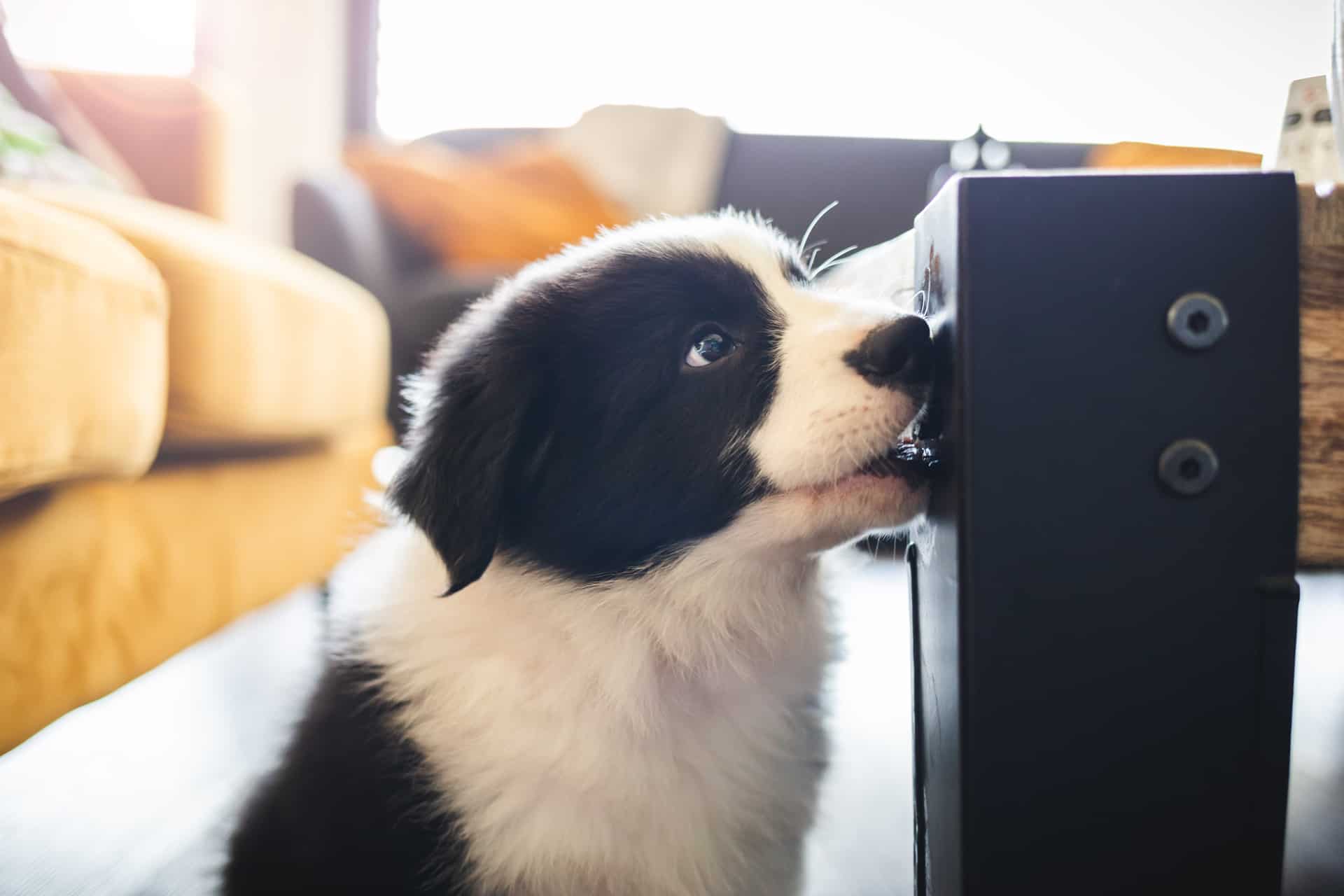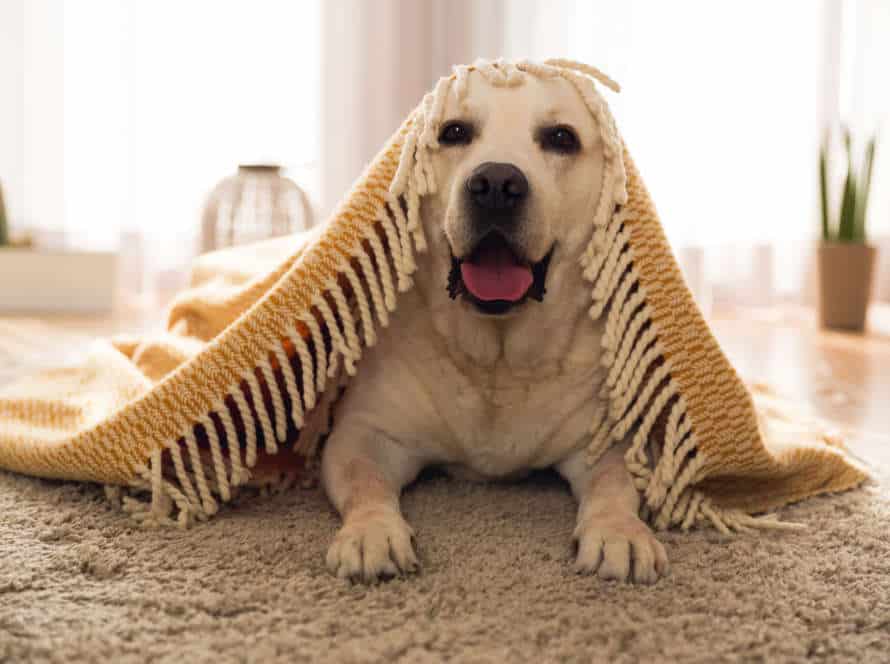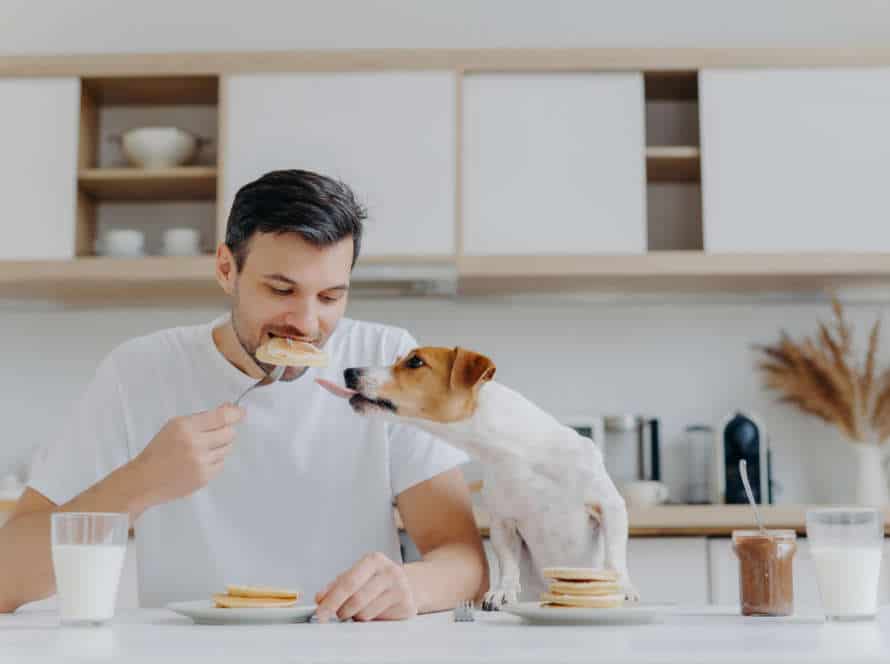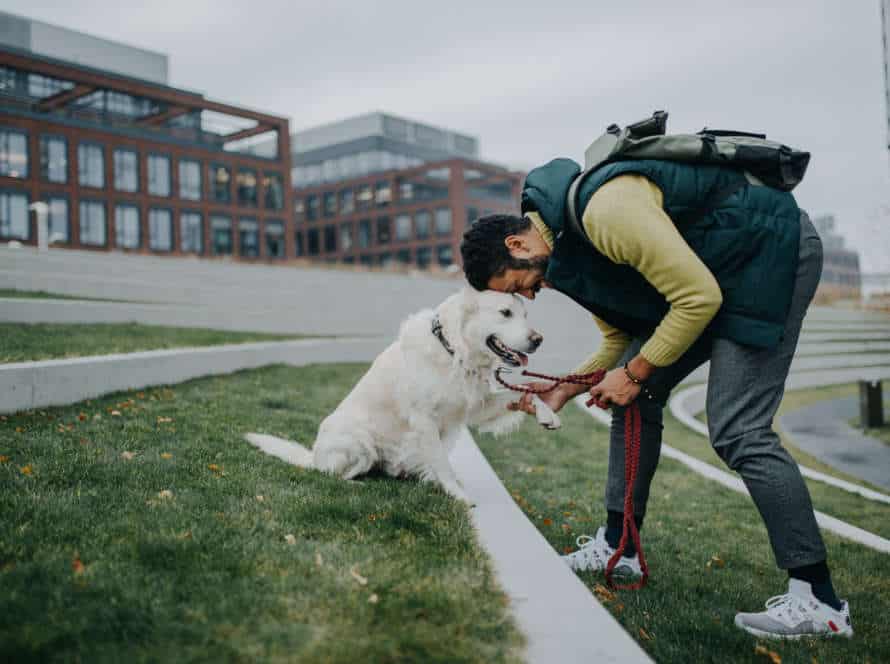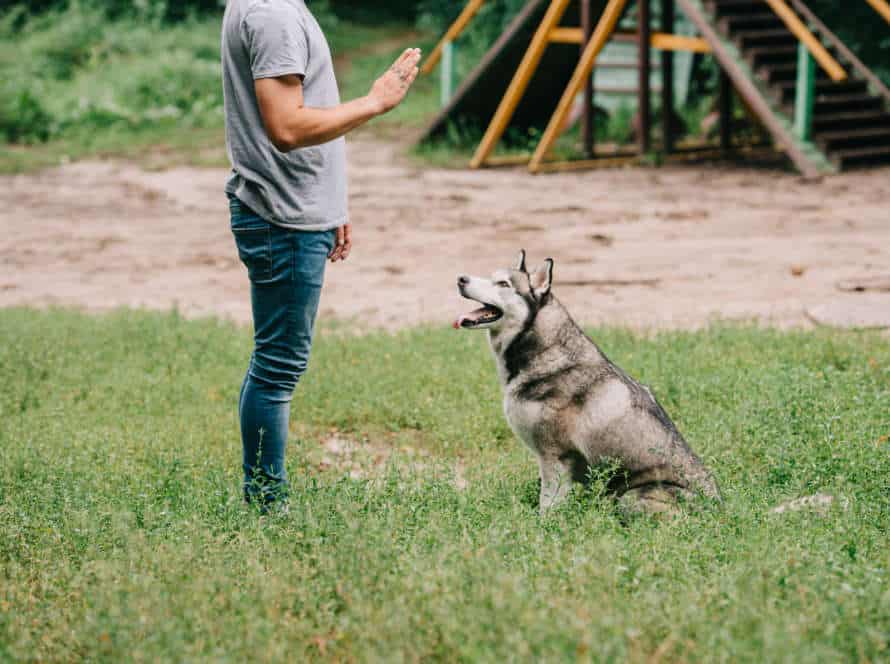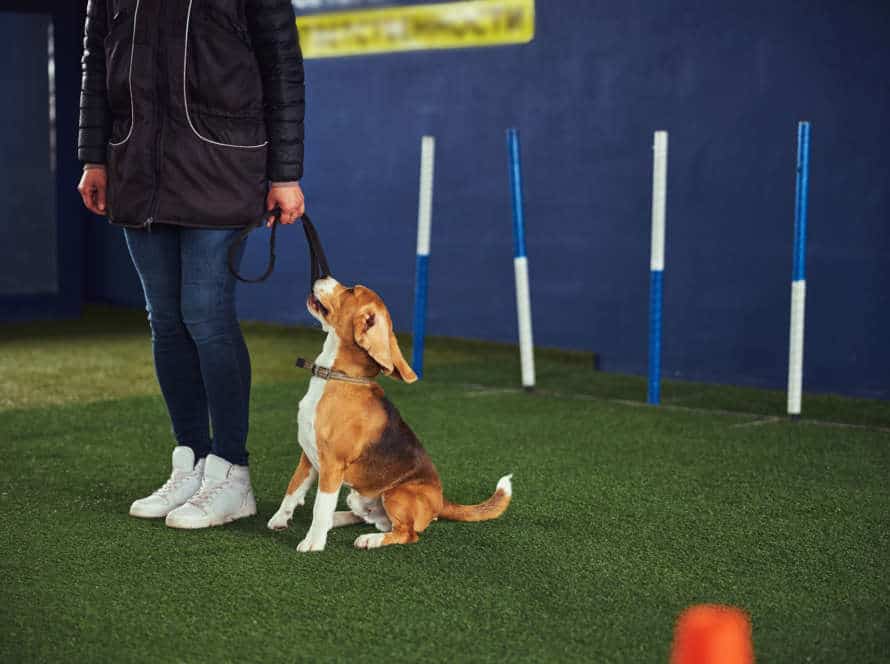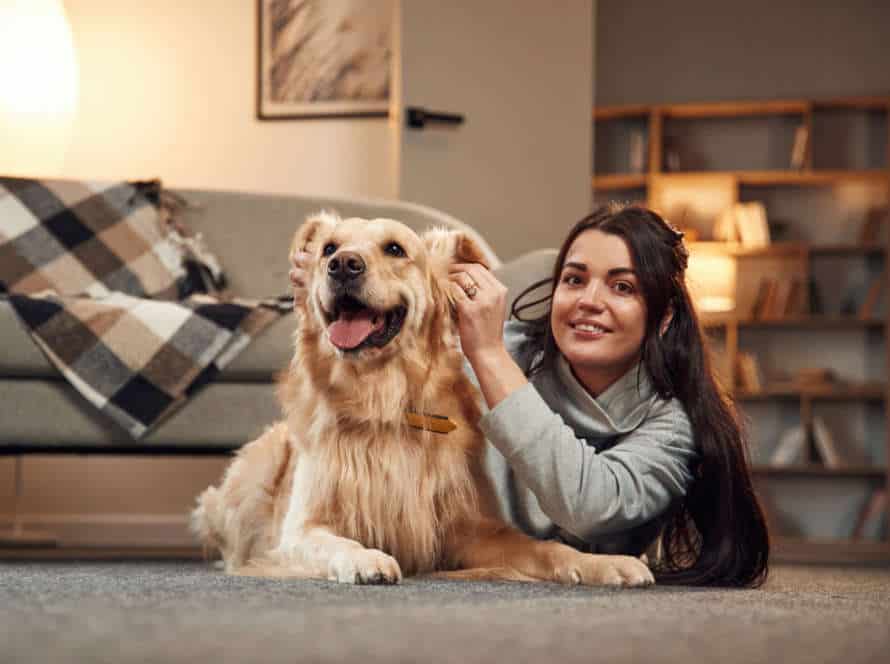Addressing Common Puppy Biting Challenges: Tips and Techniques
Pups love to bite and chew! But, this can be tough for new doggo owners. Here are some tips and tricks to help sort out the pup-biting problem:
- Chew toys and safe bones for their age and breed: Encourage appropriate chewing with these.
- Consistency is key: Training and discipline techniques should be consistent. Pups like routine and structure.
- Redirect attention: Whenever pup starts to chew on something not allowed, redirect them to an acceptable activity or toy.
- Socialize: Socializing your pup is important to prevent biting and chewing issues.
- Patience is a virtue: Addressing puppy biting challenges takes time. With consistent training and rewards, your pup will learn to be well-behaved.
Understanding Why Puppies Bite
Puppy biting is a common issue for pet owners. It can be difficult to know how to handle it. But it’s essential to understand why puppies bite.
Puppy biting is natural. It’s caused by many things like instinct, teething and exploring. Let’s explore the causes of puppy biting and how to address it.
Explore the natural tendency of puppies to bite
Puppies have a habit of biting, chewing and mouthing. To manage it, understanding is key. Here are tips:
- Teach ‘no bite’ and redirect to chew toy.
- Rough play or games encourage biting – no!
- Exercise, mental stimulation and socialization – yes!
- Enroll in puppy training class to learn bite inhibition.
- Consistency, positive reinforcement and patience – essential!
Understand that biting is an important part of a puppy’s learning experience
Puppies start to nip and bite as soon as they start exploring their environment. This is an important part of their learning process. But, too much biting can be a problem for both the pup and its owner.
It’s necessary to take care of puppy biting issues with the right techniques. Here are some tips:
- Give many chew toys to help direct their biting energy.
- Use positive reinforcement to show them what behavior is ok.
- Be clear and firm when they bite too hard.
- Don’t use physical punishment or your hands to play.
- Biting is just a stage, so be patient and consistent with teaching.
- With time and effort, most puppies get past this biting phase and develop good habits.
Distinguish between playful biting and inappropriate biting
Puppy biting comes in two forms. Playful biting is common and generally harmless, with accompanying barks or growls. It reflects a pup’s natural development. Inappropriate biting, however, can be aggressive and painful. It may arise from anxiety, frustration, or lack of socialization.
As pet owners, we must recognize and tackle inappropriate biting early. Training, socializing, and positive reinforcement can help with puppy biting issues, and prevent future problems.
Redirecting Puppy Biting
Puppy biting can be hard to handle. But, there are ways to help your pup learn how to redirect their biting to something else instead of their owners or other people. All puppies need to explore the world and use their mouth to do so. You can provide guidance and support to teach them how to do this. It’s possible!
Teach your puppy bite inhibition
Teaching bite inhibition to your pup is essential. It’s key for preventing aggressive behavior, and for setting up a healthy relationship with your pet. So, how do you redirect puppy biting? Here are some tips.
- Positive Reinforcement: When your pup behaves well, praise them and give treats.
- Chew Toys: Give them chew toys instead of your hands or feet, especially during teething.
- Consistent Training: Make a routine, and make sure all family members stick to it.
- Stay Calm: No screaming, hitting, or excessive punishing. Reinforce good behavior instead.
- Seek Help: If your puppy’s biting continues, get expert help from a certified dog trainer or behaviorist.
Redirect your puppy’s biting to appropriate toys
Redirect your puppy’s biting to the right toys. Here’s how:
- Provide lots of chew toys.
- Reward your pup when they play with toys.
- Interrupt biting by saying “no” and focus them on a chew toy.
- Be constant and stay patient – your pup will learn that playing with toys is better than biting.
Remember, biting is natural for puppies – redirecting helps them know what’s ok and not.
Use positive reinforcement techniques to encourage appropriate behavior
Positive reinforcement is a useful way to teach your pup appropriate behavior and discourage biting. It involves giving treats, praise and attention for good behavior instead of punishing bad behavior.
Here are some positive reinforcement tips for dealing with puppy biting:
- Give them a chew toy or treat – Encourage your pup to chew something else when they start biting.
- Use verbal cues – Teach your pup a command, like “gentle” or “no bite,” and reward them when they obey it.
- Offer praise and affection – When your pup does well, like chewing a toy instead of your hand, offer praise and affection. Your pup will learn that good behavior gets positive reinforcement.
Be patient, consistent and firm in your approach. With practice and time, your pup will learn right behavior and form good habits.
Strategies to Reduce Puppy Biting
Puppy biting? No problem! It’s easy to stop with the right strategies. Here are some tips to teach your pup that it’s not okay:
- Be consistent.
- Don’t play too rough.
- Give your puppy lots of toys and rewards when they don’t bite.
With these steps, you’ll soon have a happy, obedient puppy.
Follow a regular exercise routine to help manage puppy energy
Exercising regularly is a great way to control your pup’s energy and curb their biting. Exercise helps them expend their energy, which can stop their chewing and biting habits. It also keeps them healthy and strengthens your relationship. Here are some tips for a successful exercise routine:
- Start slow and increase intensity and duration.
- Tailor activities to your pup’s age, breed, and health conditions.
- Change up the types of exercise for your pup’s engagement and interest.
- Be consistent and do it at the same time every day.
These tips can help your pup use their energy in a positive way, lessening their biting and creating a healthy, happy, and well-behaved pet.
Restrict access to inappropriate biting targets
Puppy biting is a common struggle for dog owners. To stop it, limit your pup’s access to objects they might bite such as shoes and furniture. Also, get durable chew toys for them to bite. Use positive reinforcement to teach them what’s ok and not ok to bite. Redirect their attention to appropriate items – like chew toys or treats. Do this consistently to modify their behavior and stop the biting.
Teach your puppy basic obedience commands to help redirect behavior
Teach your pup basic obedience commands to help redirect biting behavior and create a good behavior foundation. Here are some simple commands:
- “Sit”: Hold a treat above their head and say “Sit.” If they do, reward them with the treat.
- “Stay”: Have them sit, then put your hand in front of their face and say “Stay.” Walk back a few feet while facing them. If they stay, give them a treat. Slowly increase the distance.
- “Come”: Get down on their level and say “Come” while holding a treat. Give them the treat when they come.
Pro Tip: Consistency is the key. Use positive reinforcement, repetition, and patience for a strong behavior foundation.
The Importance of Consistency
Training a pup can be tough. One of the biggest issues puppy owners face is puppy biting. To fix this, remember to be consistent. If your puppy bites and you respond differently each time, your pup will be puzzled. They won’t learn the behavior you want them to. Consistency is key for successful puppy training.
Consistently model appropriate behavior for your puppy
Consistency is vital when teaching and tackling common puppy biting issues. Puppies usually learn from their owner’s behavior, so it’s important to set a good example.
Here are some tips and tricks to help you maintain consistency in training your pup:
- Set clear boundaries: Decide what behaviors are alright, and which aren’t.
- Be consistent in reacting to your puppy’s biting. Utter a stern “No” and guide their attention to a suitable chew toy.
- Schedule routines that are consistent. Keeping feed, walk, and play times the same will help create a routine for your pup and reinforce good behavior.
- Remember, consistency and patience are key in training your puppy. Pro tip: Always reward good behavior with treats and praise to strengthen the behavior you want to see.
Maintain consistent expectations around what is and is not acceptable puppy behavior
Consistency is super important for training your pup. Here’s why and how it helps address biting challenges.
- Clarity: Consistent methods prevent confusion and anxiety.
- Trust: Knowing what to expect builds trust.
- Learning: Repetition speeds up learning.
To tackle biting, be consistent with:
- Cues, like commands or signals.
- Redirection, like chew toys.
- Rewards, to reinforce good behaviour.
Tip: Consistency needs patience, repetition and positive reinforcement.
Seek out professional resources if you are struggling with puppy biting challenges.
Puppy biting is a common problem for pet owners. If you are dealing with this, getting professional help is great.
A dog trainer can give you valuable tips, techniques, and training methods to stop your pup’s biting.
They can also figure out why your pup is biting and make a special plan based on your pup’s needs, personality, and temperament.
Plus, puppy classes can help socialize your pup, teach them how to play properly, and reinforce good habits.
Getting the right help and being consistent in training will lead to a well-behaved, happy pup!
Frequently Asked Questions
Q: Why does my puppy bite so much?
A: Puppy biting is a natural behavior, as puppies explore their world and learn through play. However, it is important to teach your puppy appropriate biting behavior to avoid accidents and injury.
Q: How can I train my puppy to stop biting?
A: Consistent training is key. Teach your puppy bite inhibition by yelping or saying “ouch” when they bite too hard, and redirect their attention to a chew toy or appropriate object to bite. Reinforce positive behavior with treats and praise.
Q: Is it ever appropriate to physically discipline my puppy for biting?
A: No, physical punishment can harm your puppy and damage your relationship with them. Instead, use positive reinforcement techniques to train your puppy.
Q: What if my puppy continues to bite despite training?
A: Consider seeking professional help from a dog trainer or behaviorist. They can offer individualized advice and guidance for your specific situation.
Q: Should I allow my puppy to play with other dogs while they are still learning to control their biting?
A: It is important to supervise your puppy’s playtime with other dogs and ensure they are appropriately socialized. If your puppy is excessively biting during play, calmly intervene and redirect their attention.
Q: When will my puppy stop biting?
A: Biting behavior should decrease as your puppy grows and learns appropriate behavior through consistent training. However, it is important to continue reinforcing positive behavior to maintain good habits.

